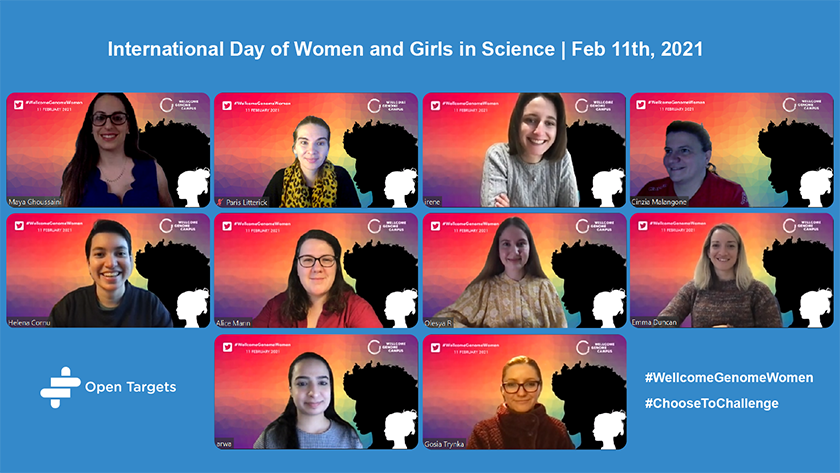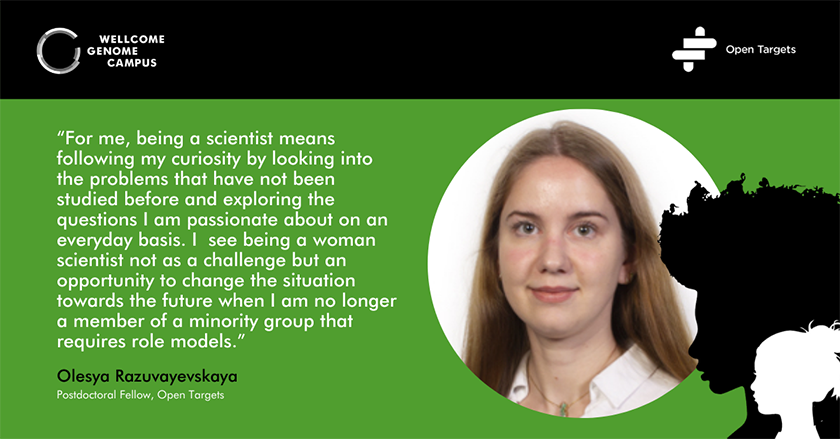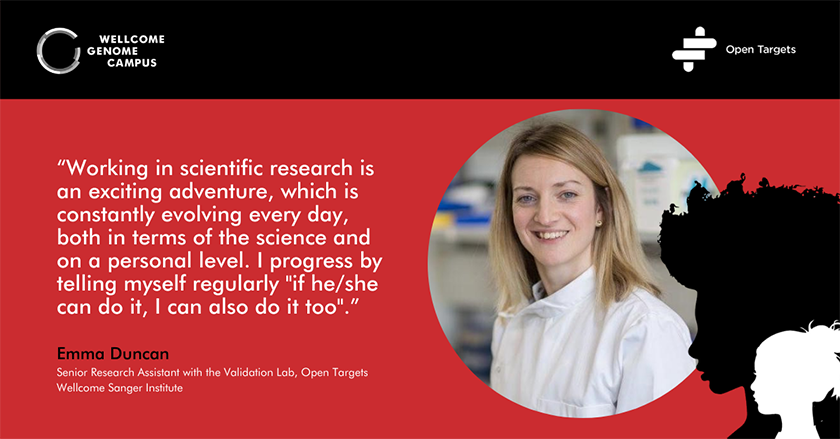International Day of Women and Girls in Science 2021 — Perspectives from Open Targets
If the pandemic has taught us anything, it's that the world needs science. And science needs diversity.
Globally, less than 1 in 3 research positions are held by women, and data suggests that the pandemic is widening existing disparities, particularly for researchers in the early stages of their career.
On this International Day of Women and Girls in Science, we wanted to celebrate some of the incredible women at Open Targets. This day is the opportunity to create a discussion around and greater awareness of the challenges to reach gender equality in science, but also to push for full and equal access to and participation in science for everyone.

We asked some of our staff to tell us what being a woman in science means to them, and about some of the challenges of working during the pandemic.
Olesya Razuvayevskaya, Postdoctoral Fellow at Open Targets

"For me, being a scientist means following my curiosity by looking into the problems that have not been studied before and exploring the questions I am passionate about on an everyday basis. I see being a woman scientist not as a challenge but an opportunity to change the situation towards the future when I am no longer a member of a minority group that requires role models."
Olesya is currently working on applying natural language processing techniques for analysing the reasons behind the terminated clinical trials.
Maya Ghoussaini, Genetic Analysis Team Leader for the Open Targets Genetics Platform
The pandemic has brought difficulties as well as positives. The nursery on campus was shut in March 2020, a few days before the announcement of the first lockdown. I found myself working from home full-time while caring for my 3 year-old boy. I felt guilty when I worked and guilty when I looked after my child, so balancing work and personal life was very difficult. I ended up working additional hours in the night to ensure that I was on track and finalised/submitted a couple of manuscripts before going on maternity leave.
By the time the third lockdown arrived, I found myself looking after my newborn baby while home-schooling and caring for my now 4 year-old child. I voluntarily worked a little just to stay on top of things. It is tough. I feel like the pandemic robbed me of some of the most enjoyable aspects of my maternity leave and isolated me from my family, friends and colleagues. My family lives abroad, and with the restrictions rules in place, I often feel isolated and I worry about them getting sick.
I feel very lucky to work in a supportive environment whether Sanger or Open Targets. From one-to-one coaching sessions for new parents returning from parental leave to access to remote meditation and fitness classes to emphasis on the importance of mental wellbeing, Sanger did everything to ensure that employees are well supported.
Managing my team remotely went surprisingly well and the tough circumstances brought us closer than ever before. Despite the challenges, I would say that the past year has been very productive and everyone tried their best.
Since the pandemic, conferences have been organised remotely, which meant that I was able to attend more conferences than what I would usually do, while sitting in the comfort of my home. I also really enjoy not having to commute every day for over an hour, which allows me to spend more with my family.
This lockdown has taught me that we can work remotely and still maintain work productivity and quality. Once the pandemic is over, a hybrid model is likely to be adopted by institutions worldwide, one which balances the benefits of working remotely with the benefits of face to face interactions.
Emma Duncan, Senior Research Assistant with the Open Targets Validation Lab

"Working in scientific research is an exciting adventure, which is constantly evolving every day, both in terms of the science and on a personal level. I progress by telling myself regularly 'if he/she can do it, I can also do it too'."
Once campus reopened with appropriate safety measures in place, Emma started working in the lab again (and had to contend with campus flooding!). The Validation Lab is currently in a pilot study to provide additional, independent validation and mechanistic evidence for oncology and neurodegeneration targets. The Lab's work will aid the translation of such targets into drug discovery pipelines.




